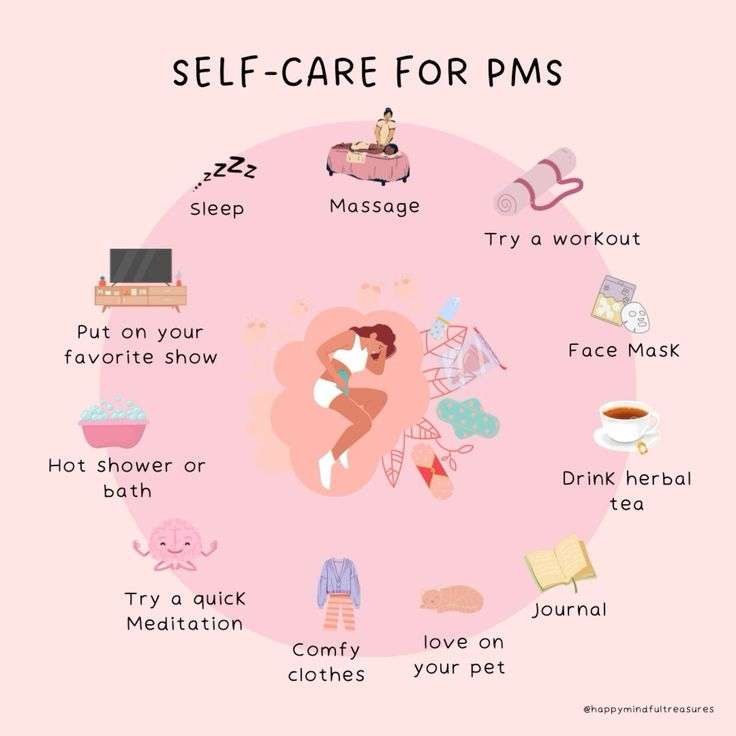**Self-Care Strategies for Managing PMS**
Premenstrual syndrome (PMS) affects many individuals in varying degrees, often causing discomfort and emotional fluctuations. While it's a natural part of the menstrual cycle, practicing self-care can significantly alleviate symptoms and enhance your overall well-being during this time. Here are practical and effective self-care strategies to help you manage PMS symptoms:
**1. Prioritize Rest and Sleep*
During the days leading up to your period, prioritize getting enough restorative sleep. Establish a bedtime routine that promotes relaxation, such as dimming the lights, avoiding screens before bed, and practicing deep breathing or gentle stretching.
**2. Nourish Your Body*
Pay attention to your diet and nutrition. Eat balanced meals that include whole grains, fruits, vegetables, and lean proteins. Limiting caffeine, sugar, and processed foods can help stabilize mood swings and reduce bloating and irritability.
**3. Stay Hydrated*
Drink plenty of water throughout the day to stay hydrated and help reduce symptoms like headaches and fatigue. Herbal teas, such as chamomile or peppermint, can also provide soothing relief.
**4. Gentle Exercise*
Engage in light physical activity, such as walking, yoga, or swimming. Exercise releases endorphins, which can alleviate mood swings and reduce stress. Listen to your body and choose activities that feel comfortable and enjoyable.
**5. Stress Management*
Practice stress-reducing techniques such as meditation, deep breathing exercises, or progressive muscle relaxation. Managing stress can help minimize the intensity of PMS symptoms and improve overall well-being.
**6. Heat Therapy*
Apply a heating pad or warm compress to your abdomen or lower back to relieve cramps and muscle tension. Heat therapy can help relax muscles and alleviate discomfort associated with PMS.
**7. Herbal Remedies*
Consider using herbal remedies such as chasteberry (Vitex agnus-castus) or evening primrose oil, which some studies suggest may help regulate hormonal fluctuations and alleviate PMS symptoms. Consult with a healthcare provider before trying any herbal supplements.
**8. Emotional Support*
Reach out to supportive friends, family members, or a therapist if you're feeling overwhelmed or emotionally sensitive during PMS. Talking about your feelings and receiving empathy can provide comfort and perspective.
**9. Pamper Yourself*
Take time to indulge in self-care activities that promote relaxation and uplift your spirits. This could include taking a warm bath with Epsom salts, practicing aromatherapy with essential oils, or treating yourself to a massage.
**10. Track Your Symptoms*
Keep a journal or use a period-tracking app to monitor your symptoms and identify patterns in your menstrual cycle. Tracking can help you anticipate when symptoms may occur and prepare accordingly with self-care strategies.
Managing PMS involves listening to your body's needs and adopting self-care practices that support your physical, emotional, and mental well-being. By incorporating these self-care strategies into your routine, you can empower yourself to navigate PMS more comfortably and enhance your overall quality of life. Remember, everyone's experience with PMS is unique, so it's essential to find what works best for you and seek professional guidance if needed. Taking proactive steps to care for yourself during this time can make a significant difference in how you feel throughout your menstrual cycle.
#selfcare






